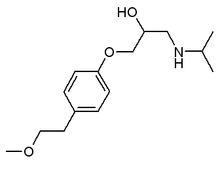TO THE EDITOR:
The Clinical Inquiries article by Jon Neher and Sarah Safranek ("What is the most effective beta-blocker for heart failure?," J Fam Pract 2003; 52(5):396-398) was well-written, but one important point was missing: the distinction between immediate-release metoprolol (metoprolol tartrate [Lopressor]) and extended-release metoprolol (metoprolol succ'mate [Toprol XL]).
The important difference between these 2 medications--based upon the well-designed trials in the literature--cannot be understated. In the Metoprolol CR/XL Randomized Intervention Trial in Congestive Heart Failure (MERIT-HF), (1) extended-release metoprolol demonstrated a 34% relative risk in mortality, whereas in the Dilated Cardiomyopathy Trial, (2) the immediate-release metoprolol demonstrated no significant reduction in mortality compared with placebo.
Kukin and colleagues (3) compared the pharmacodynamic effectiveness and clinical effectiveness with regards to blood pressure reduction, and showed a similar hemodynamic effect with the 2 medications--although the titration schedule was somewhat different, making the titration of the extensed-release metoprolol easier and possibly more tolerable.
An article recently published by Kukin (4) addressed the differences in beta-blockers for the treatment of congestive heart failure. Kukin correctly distinguishes between the 2 forms of metoprolol currently available in the US.
Since carvedilol and bisoprolol are both produced in only 1 form, the distinction between the tartrate and the succinate forms of metoprolol are exceedingly important. In the table in the article, each medication is listed, but again, it is not made clear to the reader that it is the succinate form of metoprolol used in the MERIT-HF study.
I hope that this letter makes it to the readers of your magazine for clarification. Confusion between different forms of similar medications can present a significant problem.
Ben Huneycutt, MD, Capital Family Physicians,
Lawrenceburg, Ky
DR NEHER RESPONDS:
I would like to thank Dr Huneycutt for emphasizing that extended-release and immediate-release metoprolol differ chemically and should not be considered equivalent. It was extended-release metoprolol (containing a succinate salt) that was used in MERIT-HF, (1) so the recommendation to use metoprolol in heart failure applies only to the extended release formulation. I regret that the original article was not clearer about the formulation, and I hope these letters help prevent possible misinterpretation by readers.
What do we know about immediate-release metoprolol (which contains a tartrate salt)? It has not been studied as comprehensively as its sister compound, and study size has proven to be very important in answering this clinical question. The article cited by Dr Huneycutt--where no effect on mortality was seen--had 383 participants. (2) However, CIBIS-I, which had 641 participants, failed to document a significant reduction in mortality with bisoprolol, (5) while CIBIS-II, with 2647 participants, found a strong beneficial effect from the drug. (6)
So the final word on immediate-release metoprolol may not have been written. Still, the data we currently have does not support its use to prolong life in heart failure.
Jon O. Neher, MD, Valley Medical Center
Family Practice Residency, Renton, Wash
REFERENCES
(1.) The MERIT-HF Study Group. Effect of metoprolol CR/XL in chronic heart failure: Metoprolol CR/XL Randomized Intervention Trial in Congestive Heart Failure (MERIT-HF). Lancet 1999; 353:2001-2007.
(2.) Waagstein F, Bristow MR, Swedberg K, et al. Beneficial effects of metoprolol in idiopathic dilated cardiomyopathy. Metoprolol in Dilated Cardiomyopathy (MDC) Trial Study Group. Lancet 1993; 342:1441-1446.
(3.) Kukin ML, Mannino MM, Freudeuberger RS, Kalman J, Buchholz-Varley C, Ocampo O. Hemodynamic comparison of twice daily metoprolol tartrate with once daily metoprolol succinate in congestive heart failure. J Am Coll Cardiol 2000; 35:45-50.
(4.) Kukin ML. Beta-blockers in chronic heart failure: considerations for selecting an agent. Mayo Clin Proc 2002; 77:1199-1206.
(5.) CIBIS Investigators and Committees. A randomized trail of beta-blockade in heart failure: the Cardiac Insufficiency Bisoprolol Study (CIBIS). Circulation 1994; 90:1765-1773.
(6.) CIBIS-II Investigators and Committees. The Cardiac Insufficiency Bisoprolol Study II (CIBIS-II): a randomised trial. Lancet 1999; 353:9-13.
COPYRIGHT 2003 Dowden Health Media, Inc.
COPYRIGHT 2003 Gale Group



